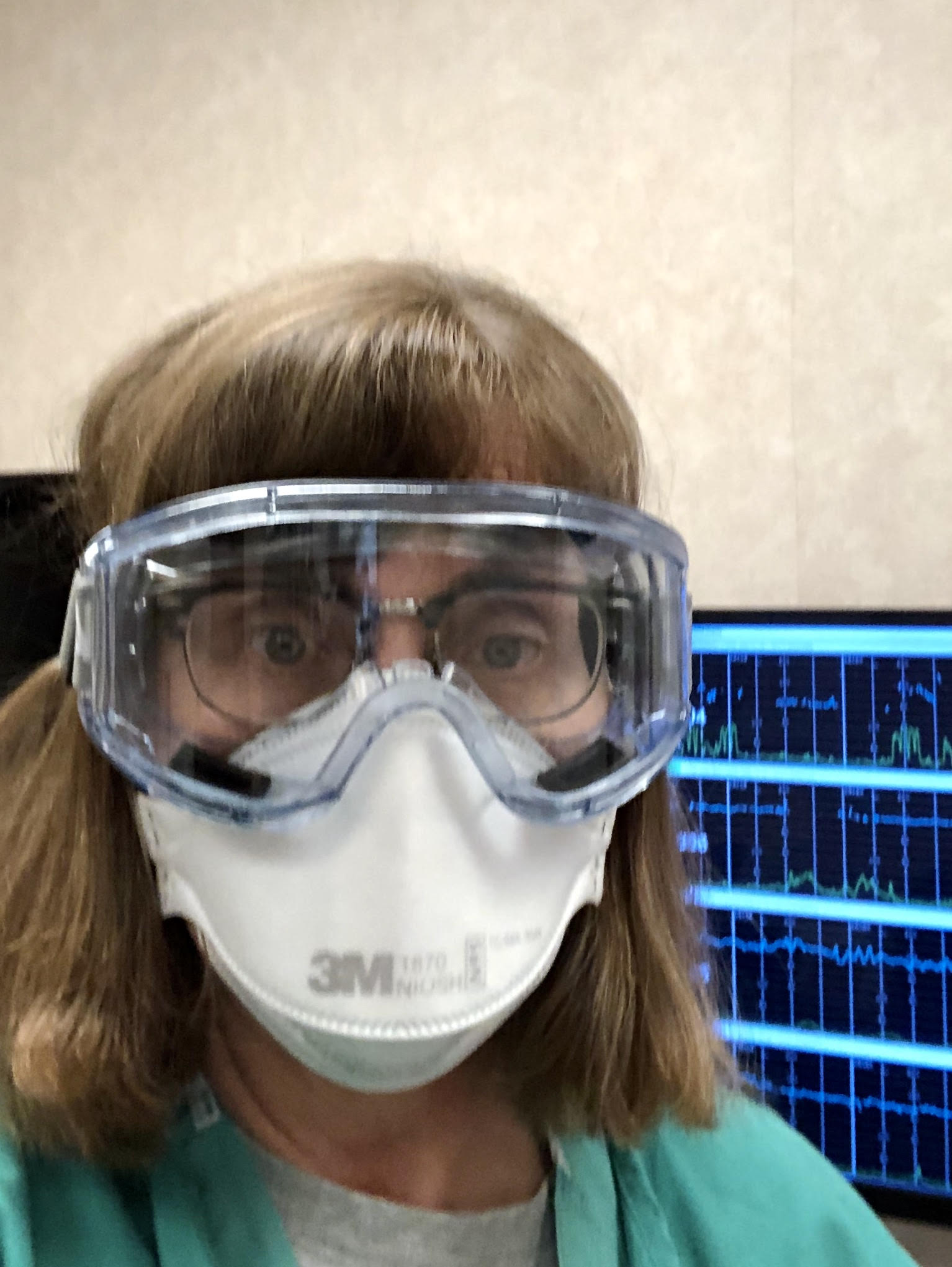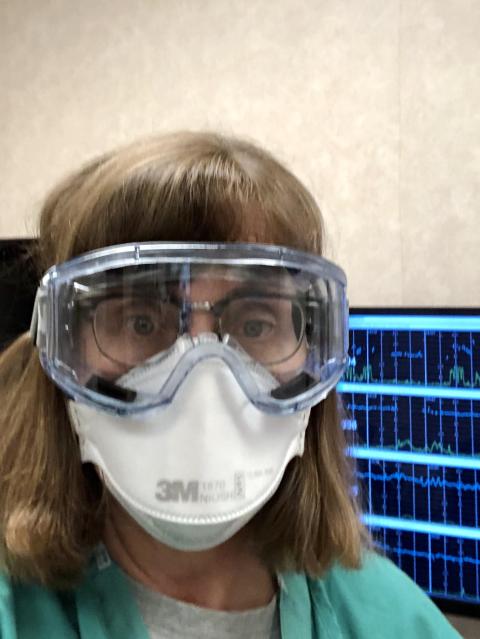
Sr. Mary Kathryn Kramer in her personal protective equipment at work (Courtesy of Sr. Mary Kathryn Kramer)

Sr. Mary Kathryn Kramer in her personal protective equipment at work (Courtesy of Sr. Mary Kathryn Kramer)
The story of Shiphrah and Puah has long been a source of inspiration to those who assist childbearing women, but perhaps now more so than ever as we continue to care for women and newborns in the midst of the COVID-19 pandemic. You may recall the story in Exodus 1:15-20:
The king of Egypt said to the Hebrew midwives, one of whom was named Shiphrah and the other Puah, "When you act as midwives to the Hebrew women, and see them on the birthstool, if it is a boy, kill him; but if it is a girl, she shall live." But the midwives feared God; they did not do as the king of Egypt commanded them, but they let the boys live. So the king of Egypt summoned the midwives and said to them, "Why have you done this, and allowed the boys to live?" The midwives said to Pharaoh, "Because the Hebrew women are not like the Egyptian women; for they are vigorous and give birth before the midwife comes to them." So God dealt well with the midwives; and the people multiplied and became very strong.
Like Shiphrah and Puah, who were coping with a new Egyptian king intent on killing the Israelite people, health care providers the world over are coping with a new reality, a reality that stretches us not just to acquire knowledge and learn new skills, but also to try to understand how to cope with a viral infection the likes of which we have never seen. Routines and procedures have changed, nonessential surgeries are postponed, and health care supplies are used judiciously.
As essential workers, we are concerned about the real possibility of taking the virus home and infecting our families and communities. Our usual routine of hand-washing and sanitizing has now become even more essential as a means to prevent the spread of the virus. Restricting laboring women to just one support person is a dramatic change from the norm of having several family members present to accompany them during labor and birth.
Spending a 12-hour shift wearing N95 masks underneath surgical masks is part of the new normal, as is the feeling of "I'm going to faint if I don't get out of these masks soon." Such was my experience earlier this week, when I was caring for a woman who would give birth in the next few minutes, and my perceptive co-worker, seeing a near-panicked look in my eyes, placed a cold washcloth on the back of my neck, a gentle reminder to just keep breathing. The baby was born and there was great rejoicing by the new mother and her own mother, as well as by my two registered nurse co-workers and me, so grateful we were that even in the midst of the pandemic, life goes on, the miracle of birth continues, and we are still able to do the work entrusted to us. For as Pope Francis said:
The United Nations estimates that 130 million babies are born worldwide each year. So in the three months most of the world has been gripped by the pandemic, probably over 30 million babies have come into the world, born in hospitals, birth centers and at home. I pray these newborns have been born in loving and safe environments, receiving the care and attention they will need to survive and thrive. I pray as well that the joy of birth is not overshadowed by anxiety and fear related to the pandemic.
Health care workers — indeed, all of us — have to focus on the essentials to stay healthy during these days. The spiritual practice of Abandonment to Divine Providence, a practice fundamental to my own religious congregation, reminds us to stay engaged in the present, doing all we can to be of service to those we are privileged to minister with and among. I am reminded of an essential truth I learned from one of my beloved teachers at the University of New Mexico who encouraged us to be very present with women as they gave birth and to always remember that birth is about more than just a baby being born. It is also about the childbearing woman's ability to become a mother.
The many Latina immigrants I have cared for during the years have taught me the phrase "dar a luz." With its origins in our belief that Christ is the Light of the World, "dar a luz" literally means to "bring to light." Being ready to be a mother, bringing newborn babies to light: This is the essence of the work of midwives, physicians and maternity nurses now. May we do so with ever more reverence, love, hope and generosity.
[Sr. Mary Kathryn Kramer is a Sister of Divine Providence of Kentucky and presently serves as a member of her provincial council. Trained as a nurse-midwife and family nurse practitioner, she went on to receive a doctorate in nursing and continues in ministry at St. Elizabeth Healthcare and Thomas More University in northern Kentucky.]
Advertisement





